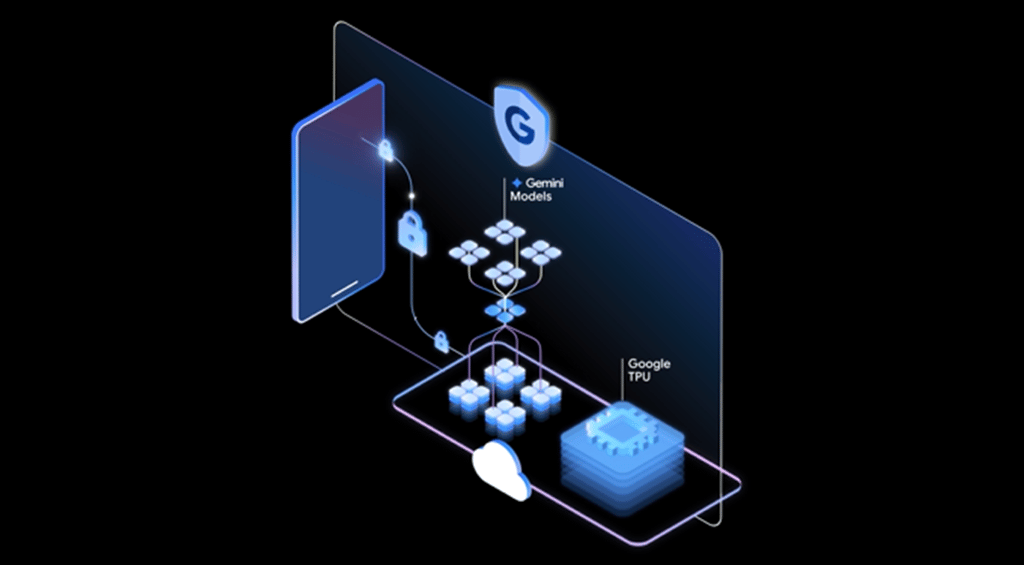The top Platform as a Service (PaaS) providers play a key role in cloud computing – one that will likely expand as cloud deployments keep growing. Along with SaaS and IaaS, PaaS is one of the most common – and fastest growing – cloud models. At the center of the key battle for cloud market, AWS vs. Azure vs. Google, is the vendor competition to provide the most complete PaaS solution.
Offered by many top cloud companies, PaaS is a cloud-based platform that includes the operating environment and application services for building cloud apps. PaaS is specifically for cloud-based application development. Customers are given resources to build, deploy, and launch software applications, such as apps and tools, hosting, databases, cloud security, and data storage. PaaS platforms are elastic and can scale up or down as needed for a multicloud environment.
Cloud Storage and Backup Benefits
Protecting your company’s data is critical. Cloud storage with automated backup is scalable, flexible and provides peace of mind. Cobalt Iron’s enterprise-grade backup and recovery solution is known for its hands-free automation and reliability, at a lower cost. Cloud backup that just works.
SCHEDULE FREE CONSULT/DEMO
There is quite a mix of players in this field. Our methodology for choosing them includes factors like the vendors’ strength in the cloud market and depth of focus on offering a PaaS solution. Specifically, we chose the following vendors based on:
* Breadth of PaaS tools.
* Unique offerings not found elsewhere.
* Maturity and quality of PaaS tools.
This methodology led to an interesting mix of vendors. They are listed in no particular order.

Chart: Having seen dramatic growth, the Platform as a Service market is expected to enjoy still more rapid growth in the next few years. Source: Statista.
How to Choose a PaaS Solution
Shopping for a PaaS solution is both simple and complex.
It’s complex because a PaaS platform itself is a complex concept, built with AI, ML, code written in myriad languages (of course) and a truly byzantine array of data tools. It’s simple – or reasonably so – because most of the PaaS providers focus on one niche or another (ranging from application development to blockchain). Or in the case of the majors (the likes of AWS and Azure) they are working to cater to several niches, or even offer some kind of “one size fits most” solution. Bottom line: when you shop for a PaaS solution, you need to make sure your potential vendor offers a PaaS platform that fits your exact niche.
The other key component of selecting a PaaS provider: It’s likely that you already use one of the major public cloud providers, such as Google Cloud or Azure. Certainly all of the majors have sophisticated PaaS offerings. So ask yourself: Does my company need services beyond what this major cloud platform’s PaaS solution provides? Or, given that so many companies are using more than one public cloud – multicloud is now the standard – which of the many cloud platforms do you want to use for your PaaS provider? Or, perhaps a more common approach: which of the PaaS platforms that we already have access to do we want to use for each of our PaaS processes?
Jump ahead:
Amazon Web Services
Key value proposition: For enterprises and startups that require an advanced PaaS solution, and have the expertise to navigate it.
AWS Elastic Compute Cloud (EC2) is the basic IaaS service from Amazon and spins up a virtual instance quickly. For a PaaS environment you need AWS Elastic Beanstalk, an easy-to-use service for deploying and scaling Web applications and services developed in a variety of Web languages, including Java, .NET, PHP, Node.js, Python, Ruby, Go, and Docker. Amazon also offers Lambda for serverless computing, where you don’t set up a dedicated server, your code is executed only under triggers or conditions, and you pay only when the code runs.
Microsoft Azure
Key value proposition: Very well-respected by legacy enterprise clients, especially those with a private cloud element.
Azure builds on Microsoft’s on-premises legacy by allowing Windows developers to move to the cloud relatively quickly and easily and it does so through a number of PaaS services. Azure Functions is an event driven, compute-on-demand experience similar to AWS Lambda. Code is run by triggers from Azure, a third-party service or on-premises systems. AzStudio is a platform for migrating legacy .Net apps to the cloud.
Azure Web Apps is for hosting standard ASP.NET web applications in the cloud. Azure Mobile Apps can host a variety of mobile apps for IOS, Android, Windows, and Xamarin. Finally, Azure Logic Apps orchestrate business logic with SaaS and enterprise apps.
Key value proposition: Though known as a SaaS pioneer, Salesforce has earned respect as a PaaS solution for enterprise.
Salesforce Platform is a full suite of tools for building apps that automate business processes. Platform consists of several services, starting with Heroku, for building customer-connected apps using Salesforce data. Shield helps developers add compliance, governance rules and transparency to their apps. Environments is a secure sandbox for building and testing apps, Connect handles connections to back-end on-premises systems and Identity manages user identities and permissions.
IBM / Red Hat OpenShift
Key value proposition: Developers can always rest assured they’re on the most current PaaS solution with Red Hat OpenShift.
With IBM’s acquisition of Red Hat in 2019, Red Hat OpenShift forms the core of IBM’s PaaS offering, and indeed plays a key role in IBM’s overall cloud strategy. OpenShift is Red Hat’s entirely open source container-based PaaS platform, providing developers with an integrated development environment (IDE) for building and deploying Docker-formatted containers and managing Kubernetes. The overall service is made up of four different services, all based on the same technology.
OpenShift Container Platform is the core service, while OpenShift Online is for individual developers or teams that access OpenShift as a public cloud service. OpenShift Dedicated runs in a single-tenant rather than virtualized environment for customers that need the performance of a single-tenant environment, and OpenShift.io provides a free end-to-end service for building cloud-native applications.
Mendix
Key value proposition: This “low code” PaaS solution enables faster, simplified app delivery.
Mendix offers what it calls aPaaS, or rapid app platform-as-a-service. It offers a set of comprehensive, integrated tools and platform services for the entire app lifecycle, accelerating the process from initial design to deployment by requiring far less code. The company claims applications are created 10 times faster with 70% fewer resources. This is the key advantage to the “low code” approach: it’s faster and requires less expertise from developers.
Google App Engine
Key value proposition: A heavy-duty PaaS platform capable of helping create the most robust applications.
Google App Engine enables you to build and host applications on the same systems that power Google applications using Python, Java, PHP and Go. Google provides SQL and NoSQL databases, secure authentication, scaling and A/B splitting of apps and traffic and IoT. Google also offers the Google Kubernetes Engine, which allows customers to easily run their Docker containers in a fully managed Kubernetes environment and Google Cloud Functions, similar to Lambda in that you can create small, single-purpose serverless apps or functions that respond to cloud events without the need for a server or a runtime environment.
Dokku
Key value proposition: For open source users who don’t need a highly scalable environment.
Dokku’s sales pitch: “The smallest PaaS implementation you’ve ever seen.” It’s an extensible, open source platform that runs on a single server of your choice, so long as your choice is Ubuntu, Debian, or CentOS. You deploy it with one Git wget command. It supports Ruby, Rails, Node.js, Java, Play!, Python, PHP, Clojure, Go, and Dart and offers simple deployment into production. Dokku is not exactly a scalable environment since it only runs on the server where you deployed it. So it’s meant for small, low traffic and restricted environments.
Zoho Creator
Key value proposition: A low or no code solution that tends to be a good fit for SMBs.
Most PaaS environments offer a variety of application languages but Zoho Creator lets customers build Web apps with no code at all. They simply build the app from a variety of prefab components and Zoho Creator ties it all together to create enterprise-class applications that run on mobile, tablet, and Web. Customers can create custom forms, configure workflows, and build information pages. The apps are then deployed to desk-bound and mobile users alike.
Key value proposition: Geared for SAP users who want to build apps for the large enterprise cloud environment.
SAP Cloud Platform is designed for SAP HANA users to build and deploy HANA-based cloud applications as well as extend cloud and on-premises software running SAP. It should not be confused with SAP’s HANA Enterprise Cloud IaaS service, which is designed around letting SAP customers move their on-premises deployments to SAP’s cloud.
HCP allows customers and partners to extend existing cloud or on-premise applications and create applications that deliver new capabilities. It connects to a wide variety of business apps and allows customers to add new features to existing apps, such as mobility support for SAP’s SuccessFactors or integrate an on-premise CRM app and the cloud.
Key value proposition: Cost effective and versatile, the Platform.sh solution is dedicated to PaaS.
Platform.sh is a continuous deployment cloud hosting service for building applications ranging from small team projects for low traffic sites to ones handling millions of visitors. It’s quickly replicates the production cluster in the dev section for rapid building and testing of apps and pushing them right to deployment. The company claims it can accelerate the development processes 20% to 40% and uses Git-based branch-merge workflows so every branch is tested as if in production, and every Git branch has a unique URL for testing. It supports PHP, Drupal, Symfony, WordPress, Magento, Laravel, Ruby, Python, Node.js, JavaQ317 environments and production apps can be hosted on AWS, Azure, and Orange Business Services.
Cloud Foundry
Key value proposition: An open source stalwart, geared for today’s complex multicloud environment.
Backed by a selection of heavyweights, including Cisco, Google, IBM and Microsoft. Cloud Foundry was originally developed by VMware and then transferred to Pivotal Software, a Dell EMC company. Cloud Foundry supports Java, Node.js, Go, PHP, Python, Ruby, .NET Core and Staticfile and is entirely open source, allowing developers to code in multiple languages and frameworks. The Cloud Foundry platform is made up of seven core groups of components: Routing, Authentication, Application Lifecycle, Application Storage and Execution, Service Brokers, Messaging, and Metrics and Logging.
Engine Yard
Key value proposition: If Ruby on Rails is your development language, Engine Yard is certainly worth a look.
Engine Yard is one of the original PaaS providers, originally established to support a full-stack Ruby on Rails solution. It has since added support for PHP and Node.js environments. With its Rails experience, if that is the language of choice, Engine Yard is your best bet. It sold its Deis container service to Microsoft in 2017 and was later acquired by Crossover, a cloud-based Ruby specialist, to form a full-stack Ruby platform.
PaaS Vendor Comparison Table
|
PaaS Vendor
|
Pros
|
Cons
|
|
AWS
|
Most comprehensive collection of services |
Its popularity could leave you feeling like a number |
|
Microsoft Azure
|
Best support for legacy Windows |
Need to be a Windows expert to make the most of it |
|
Salesforce
|
Strong integration with other Salesforce services |
IaaS is lacking compared to others, no on-premises support |
|
IBM / Red Hat OpenShift
|
Easy to set up, open source so less vendor lock in
|
Advanced functionality requires deep expertise
|
|
Mendix
|
Very fast, easy to learn |
Can be expensive
|
|
Google App Engine
|
Very good pricing, high performance |
Support costs are high in some cases
|
|
Dokku
|
Open source, easy to set up, simple deployment |
Can be limited to a single physical server
|
|
Zoho Creator
|
Build apps with no code at all; SMB-friendly |
Support could be better |
|
SAP Hana Cloud Platform
|
High performance, built on Advanced Platform
|
Pricey |
|
Platform.sh
|
Excellent for continuous development and deployment |
A smaller player in a market with some mega-large players |
|
Cloud Foundry
|
Rich support for languages, easy deployment, good scalability |
Lacks support for Kubernetes |
|
Engine Yard
|
In-depth support for Ruby
|
Limited coding language support
|
CLOUD ARTICLES 







